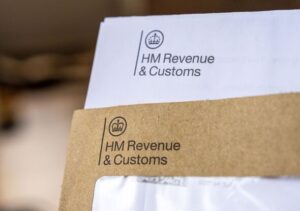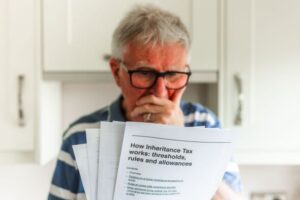
A tax expert has said people need to take action now to avoid being hit by Chancellor Rachel Reeves’ changes to how pensions operate. Proposed changes to inheritance tax could see thousands of UK households facing significantly higher tax bills, with pension savings now at risk of being included in estates for tax purposes.
International Tax Consultant, Andy Wood from Tax Natives has warned that the reforms, expected to take effect from 2027, could pull an additional 38,500 estates into the inheritance tax net, leaving families with an average bill of £34,000 unless they take action now.
He said: “The proposed changes to inheritance tax could fundamentally alter the way families use pensions in their financial planning. Historically, pensions have been a vital tool for preserving wealth across generations, but the inclusion of pension assets in the inheritance tax net from 2027 could make them a significant tax liability. This is a huge departure from the current system and will impact thousands of families.
“If pension assets are included in inheritance tax calculations, we could see a substantial increase in estates paying inheritance tax. Many families that previously considered themselves outside the scope of this tax will now face average bills of £34,000 or more. Those who may be affected should act now to avoid these potential costs.”
“A key concern is the prospect of double taxation – once through inheritance tax on the value of pension assets and again when beneficiaries pay income tax on pension withdrawals. This double hit could seriously deplete the value of savings intended for loved ones.”
He said that families who cross a higher threshold would see even greater liabilities and explained: “For families with estates worth over £2 million, the challenges are even greater. The loss of the residence nil rate band—designed to protect the family home from hefty tax bills—will push inheritance tax liabilities even higher. Early planning, such as gifting assets or restructuring estates, is important for avoiding these burdens.”
“These changes highlight the importance of looking for professional advice to understand the implications and take proactive steps. From making use of lifetime gifting allowances to restructuring wealth outside of pensions, there are options available to help families safeguard their financial legacies.”
Lifetime gifting involves transferring assets to a beneficiary during your lifetime rather than by way of your Will. This includes (but is not limited to) gifts of money, household goods, property and stocks and shares.
By making lifetime gifts, you can reduce the overall size of your estate, potentially reducing it below the IHT threshold (currently £325,000) or minimising the amount subject to IHT.
Each tax year, you can give away up to £3,000 without it being added to the value of your estate. Any unused annual exemption can be carried over to the next tax year, allowing for a total exemption of £6,000.
The Chancellor announced in the Budget that unused pension funds and death benefits will be subject to inheritance tax (IHT) of 40 per cent. This change will be implemented from 6 April 2027. At the moment you can give a pension to your child tax-free.
The move could raise almost £1.5bn a year by 2030, according to official estimates, but there are concerns this will result in a double taxation on unused pension funds on death for those over the age of 75 as pots will be subject to both income tax and IHT.
Experts said this will create higher costs for grieving families dealing with estates and risk lengthy delays before people can receive their money.
Jason Hollands, the managing director of wealth management firm Evelyn, said: “The impact of including unused assets in defined contribution pensions funds as part of an estate for IHT purposes is causing major concern.
“This measure will not only trigger much higher IHT liabilities for those who don’t revisit their financial planning, it will also significantly widen the number of people falling into the web of IHT given private pension assets are now a higher proportion of total private wealth in the UK than property is.”
















